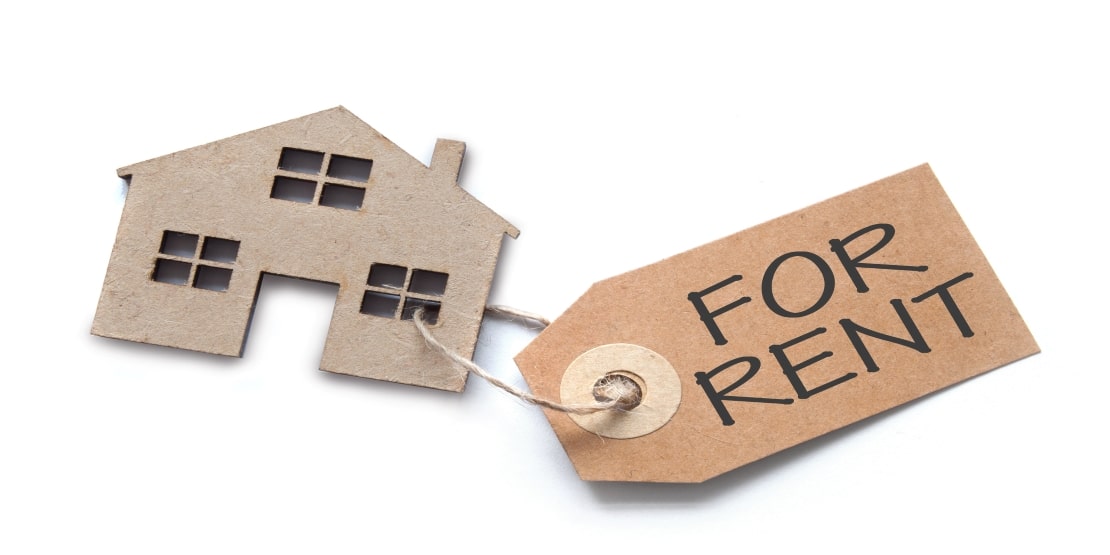With housing prices on the rise, it is only evident that more people are turning landlords in Canada. While it’s a great decision that can benefit you financially, there’s more to it than just hammering a ‘For Rent’ sign on the front lawn. Renting homes involves a lot of planning and preparation. Both can make a big difference to the rent amount you can charge and the type of tenants you draw.
In this post, we’re going to push you in the right direction. We’ll help you make your home rent-ready and ensure a positive experience as a landlord.
So, without further ado, let’s get started.
Steps to Make to your Home Rent-Ready
First impressions are vital when it comes to renting homes. Thus, it is important that your renting property looks its best for the viewings. Here’s what you need to do to make it rent-ready:
Clean and Sanitized
Before renting homes to the tenants, perform an in-depth cleaning. This means you will have to do a little more than just brush the cobwebs. Mop the floor thoroughly, wipe the surface and wash all the windows. If you’re renting homes fully furnished with appliances, be sure to clean them as well.
Walk through the house and pick up all your personal belongings in case you find any. Don’t forget to check the drawers, closets and the garage for any remainders by previous tenants.
Repair and Maintenance
As a renter, you need to check that everything around the house is working. This includes examining the air filters, replacing anything broken or torn, testing the water and electricity systems. Do not leave out the doorknobs and locks, replace them if necessary.
After you’re done with a walk through of the rental property from the inside, check the outdoors such as the balcony, furnace and railings. Make sure there are no loose railings and the furnace is fully serviced.
Landscape
Kerb appeal is essential when drawing tenants for rental properties. Your house should look fabulous inside and out. To ensure that, you need to apply a new coat of exterior paint and landscape the lawn. Mow the grass, trim the shrubs and bushes, remove debris from the patio and driveways. We also suggest weeding the flower beds and decorating the entrance with new plants and flowers.
Expert Assistance
To ensure that your rental property in Canada is completely rent-ready, get in touch with an experienced property manager. The expert will conduct a walk-through with you and recommend adjustments before letting it out for rent. If not a property manager, you can also request a lawyer to review your house. Real-estate lawyers have a fair share of experience in analyzing the best renting homes and can offer great suggestions.
Top 10 To-Dos As a First-Time Landlord
Becoming a landlord for the first time is both exciting and challenging. If things go well, you can use the rent to pay off your mortgage and gain a steady income. The challenges, however, can put you at a disadvantage.
If you’re worried about how things will unfold in your case, don’t – because we’re here for you. Follow these tips to ensure a positive experience as a first-time landlord: –
Learn About the Housing Laws
For landlords, especially first-timers, it is essential to understand the legal requirements of owning a property. For instance, landlords should not discriminate against tenants on the basis of race, colour, gender, family status, religion or disability. The landlord should also keep the property in a habitable condition. Not doing so could lead to accidents and safety hazards.
Landlords must know about laws related to rental problems like tenant eviction, fixing rental rates and more. Not researching or following local/state/federal laws can cost you later. So make sure you take out some time to understand everything about it. Hire a housing attorney if necessary but don’t take it lightly.
Make Sure the Property Looks and Feels Good
The golden rule of renting homes and attracting tenants towards it is by presenting it in the best light. To rent, you will need to click its pictures to make sure that it looks clean and maintained. Cleanliness is the first thing that most tenants notice. In addition to that, consider adding furniture and decorating the space a lot. This will give you some bonus points when potential tenants come for a showing.
Proper Tenant Screening
Screening potential tenants will make your life easier. Yes, it could take some time but it’s worth it. Selecting the right tenant makes your experience as a landlord less stressful and better. Poor tenants, on the other hand, can ruin your experience and make you regret renting your property.
With screening, you can filter out tenants who you think are reliable and responsible. As a landlord, you need to look for tenants who do not damage your property (treat it as their own) and make timely payments. Kickstart the process by asking simple questions like their employment status and why they are moving. Run a background check to learn about their eviction history, credit report and criminal history.
Set a criterion about how you want your tenant to be and contact only those who fit the same.
Price Correctly
Pricing your house correctly is key to meeting your property renting goal. Do not price as per the possible value or your expenses. It would help if you see that you don’t overvalue or undervalue it. Overvaluing your house leads to longer vacancy periods that make it hard for people to take interest in your property. Undervaluing on the contrary can result in losses.
Reach out to a professional who can give you the existing market value of your property. You can also refer to rental comps to compare and determine your property’s value.
Create a Lease Agreement
A lease agreement is a significant factor to remember when renting a property for the first time. After finding a tenant, you should get everything in writing aka a lease agreement. It is a written contract that lays out specific terms for the tenant and the landlord. It states the responsibilities and duties of both parties for the particular term of the tenancy.
Both the parties need to agree to the terms and sign the contract. It comprises all the essentials about who will maintain the property, the rental to be paid, the rental period and more. This agreement acts as legal protection in case of disputes between the parties.
Strict Rent Collection
You rent out a home to earn profits, isn’t it? To get steady earnings, you need to have an aggressive approach while collecting rent. While it is common for tenants to have financial setbacks, it cannot be a regular excuse. As a landlord, you need to make it clear to your tenants that you are not fine with late payments. Tell them you have a strict eviction policy for such tenants. This way, if an issue arises, they will always inform you about it in advance.
Set a Book-keeping Arrangement
A common mistake that most first-time renters make is not keeping a record of the property revenue and expenses. One cannot determine if renting a property is lucrative or not if there are no records to prove it.
Landlords should keep an archive of everything they buy or pay for the maintenance of the rental property. They should also collect all the forms and documents, and save them online. Things like these help a lot during disputes. Bookkeeping is an easy task, landlords can do it themselves as well.
Ask for Security Deposit
A security deposit is an integral part of the lease agreement. Landlords use this amount to cover damages by tenants. However, the laws related to security deposits differ from state to state. So, make it a point to learn about all the security deposit laws.
Sign an Inventory Record
Before the tenants move in, examine the property thoroughly. Both parties should sign a property inventory record that confirms the existing state of the house. It serves as evidence in case a dispute over property damage arises during the tenancy term.
Be Accessible
Even a small issue can spoil the relationship between a landlord and tenant. If you want to keep your tenants happy, you need to be accessible at all times. When they report an issue, respond and take quick action. Being responsive is the best way to earn your tenant’s trust.
Conclusion
Putting out one or more apartment homes for rent can give you a good financial boost. But if it’s your first time renting homes, it’s vital for you to keep learning and adapting. You need to check out the best rental properties and see if you’re doing the right thing. Staying abreast will help you avoid the troubles that most first-time landlords end up dealing with. And with our advice and suggestions above, you will surely start off on the right note.
If you’re still curious about a few things such as how to buy a rental property in Canada or renovate your newly rented home, browse our blog section! We’ve also answered a few questions below to clear out common doubts and queries.
FAQs
Becoming a landlord is challenging but not difficult. It’s challenging because there’s a lot of money and time involved and you need to be constantly on your toes about the rules and regulations surrounding rental properties.
As a landlord, you will require collecting documents like – Identity/Address Proof, Police Verification documents, Employment Details along Maintenance and Water Charges.
There are plenty of things you should know before becoming a landlord. The most important one is that your motive to become a landlord should not be solely for earning money. Before putting your house on rent, you need to conduct research and run a background check. Hiring an attorney to handle things for you is also a good plan so that you don’t miss out on any legal formalities as a landlord. Also, if your plan is to sell the house soon, then don’t rent it.
Yes, becoming a landlord comes with its risks. Some are big while others are small. These include poor tenants, breaking of rules, payment issues, no maintenance, accidental damage, unresponsive property managers, etc.
It depends on the kind of tenants you have. Poor tenants can put you in difficult situations while good tenants can make your job as a landlord super simple. As a landlord, you’ll have to be on your toes at all times. Be ready to handle confrontations, answer questions and keep an eye on property maintenance.





































